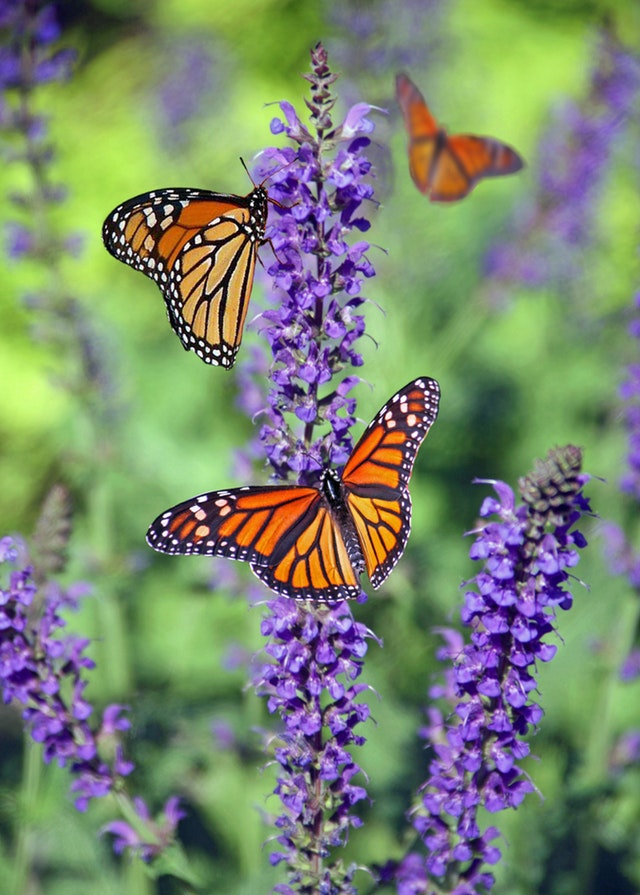June 18, 2018
 June 18-24 is National Pollinator Week! We will celebrate and learn about the wonders and benefits of pollinators with two local events in the Binghamton area. See below for details. If you aren't in the Binghmaton area, you can still take action by clicking here!
June 18-24 is National Pollinator Week! We will celebrate and learn about the wonders and benefits of pollinators with two local events in the Binghamton area. See below for details. If you aren't in the Binghmaton area, you can still take action by clicking here!These insects are critical for the reproductive cycle of 75% of flowering plants and 75% of agricultural crops. Pollinators aid flowering plants by spreading pollen from plant to plant as the insects forage for pollen and nectar. This process is essential for reproduction of wildflowers, nut trees, and many other kinds of plants—many of which produce food for humans, such as berries, nuts, squash, tomatoes, cucumbers, and so many more.
The relationship between native pollinators and native wildflowers is especially unique and valuable as they have co-evolved together. Many insects rely upon wildflowers for nectar and pollen as food sources and for other purposes. Many native bees provide pollen in the nests of young for food. In addition, the bodies of native pollinators have adapted to the shape, form, and design of individual native plants to be most efficient at collecting the plants’ resources (nectar, pollen, etc.) which means that their bodies are also the most efficient and effective at helping to pollinate the plants’ blossoms for successful reproduction. The result is a unique symbiotic relationship which mutually benefits both plant and insect.
However, pollinators face an abundance of threats to their survival, especially pesticides and habitat loss. Their decline can mean a subsequent decline in the plants which depend on them for pollination and reproduction, along with decline in agricultural production for crops of flowering plants.
Join us to learn more about these insects, their contributions and value for ecological and agricultural systems, and ways that we can take action to protect them:
Colleen Wolpert – “Improving Habitat for Butterflies and Moths”
Thursday, June 21; 7 pm
Hubbard Auditorium, Tioga County Government building, 56 Main Street, Owego
(parking behind building via Academy St)
As a curious observer of nature on her property and in her community, Colleen Wolpert enjoys sharing the knowledge she has accumulated about improving habitat for a wide variety of insects and the wildlife that depends on them for food. On only ¾ of an acre, she has had over 50 different species of butterflies and 100s of species of moths. Dragonflies and damselflies hunt by day and different species of fireflies glow at night from May to September.
Providing them with the food and shelter they require is key to helping to keep their life cycle going throughout the year. Come learn what you can do, or stop doing, that will give wildlife the habitat it needs to survive.
Facebook event (please share!)
Sunday, June 24
Pollinators in Wildwood Nature Reserve
10 AM: Meet at the Reserve parking area
(GPS: 42.002746, -76.488742 or directions at http://www.carantouangreenway.org)
9:30 AM: carpool from Tops Markets in Owego
(southwest corner of parking lot: 42.097096, -76.231801)
Join us for a visit to the Wildwood Nature Reserve, part of the Carantouan Greenway, in Waverly. We will explore this natural gem in our area, especially the fields and wetlands which are abundant in native wildflowers benefitting native pollinators such as native bees, butterflies, moths, hummingbirds, beetles, wasps, flies, and bats.
Facebook event (please share!)
Both events free and open to all. Contact Erin Riddle (riddleriddle@gmail.com or 607-372-5503—texts accepted) for more information.